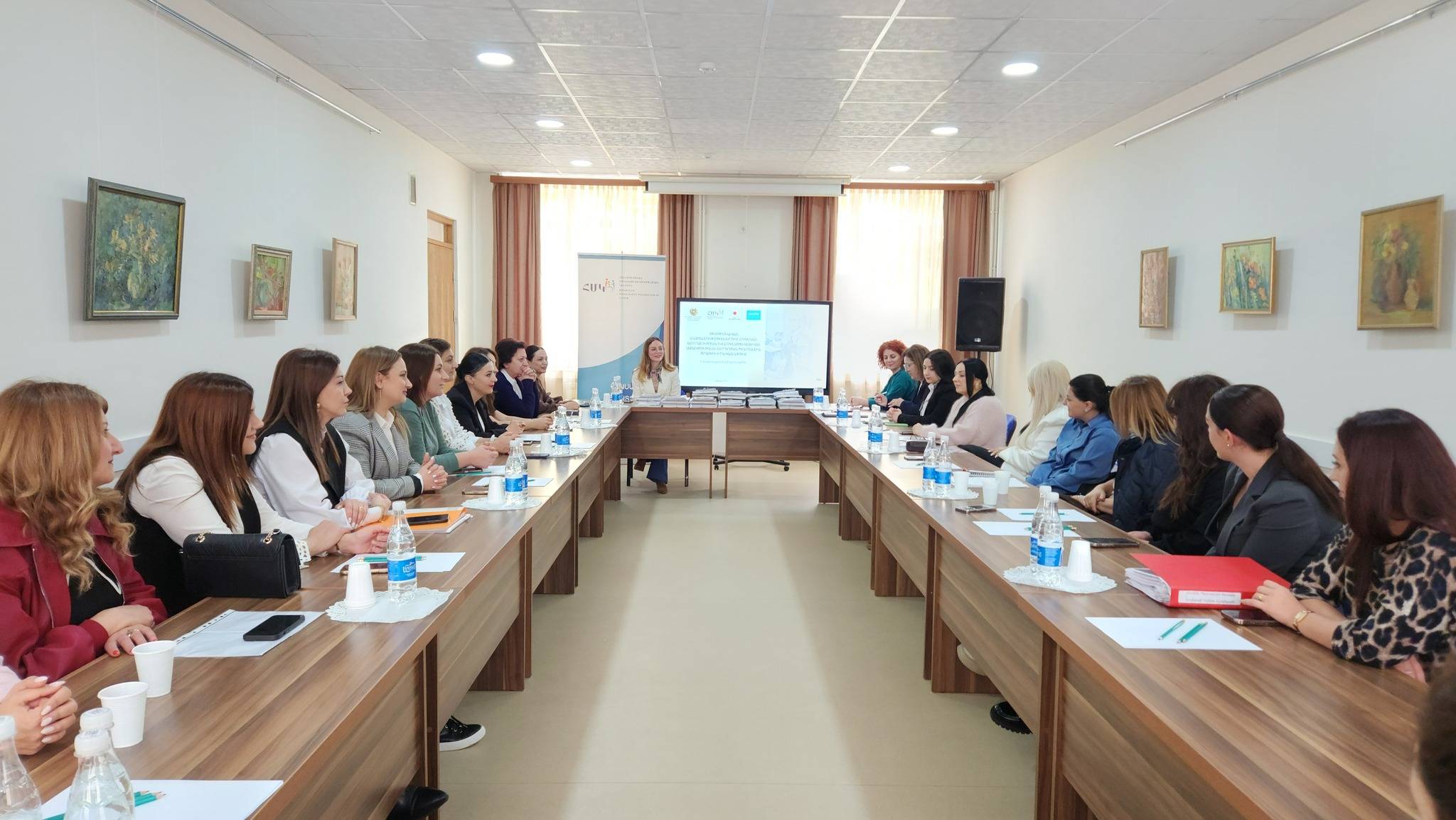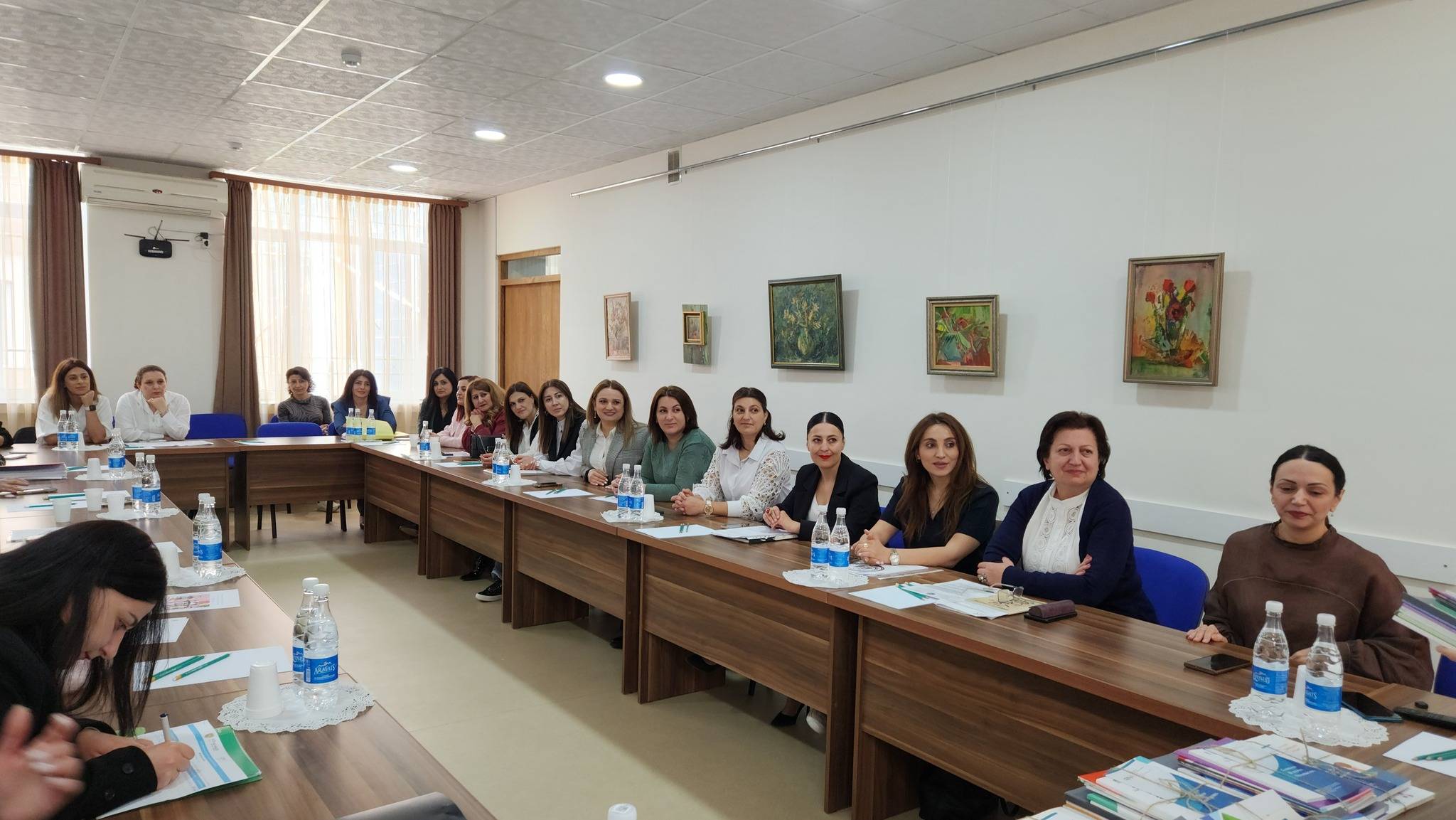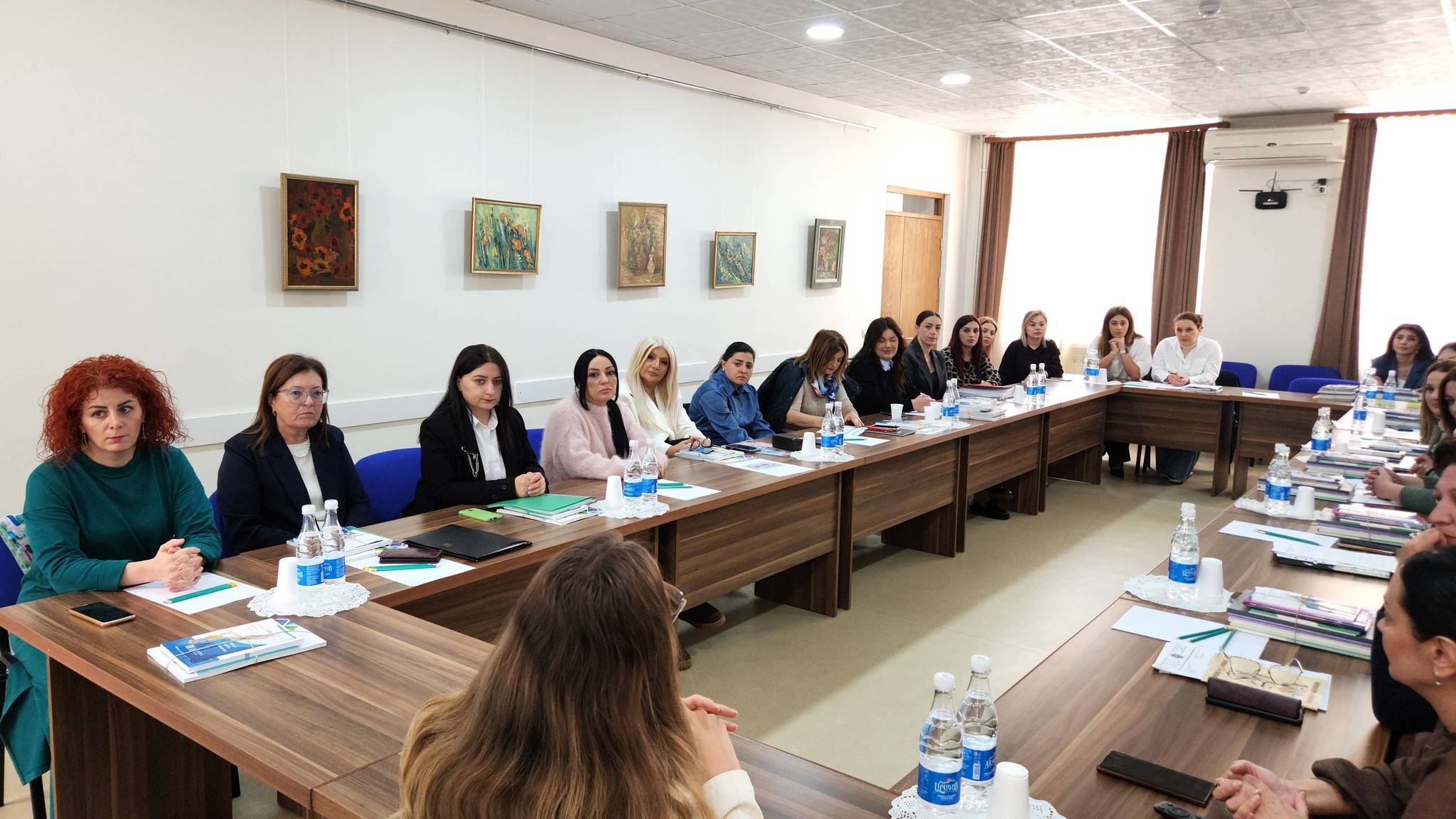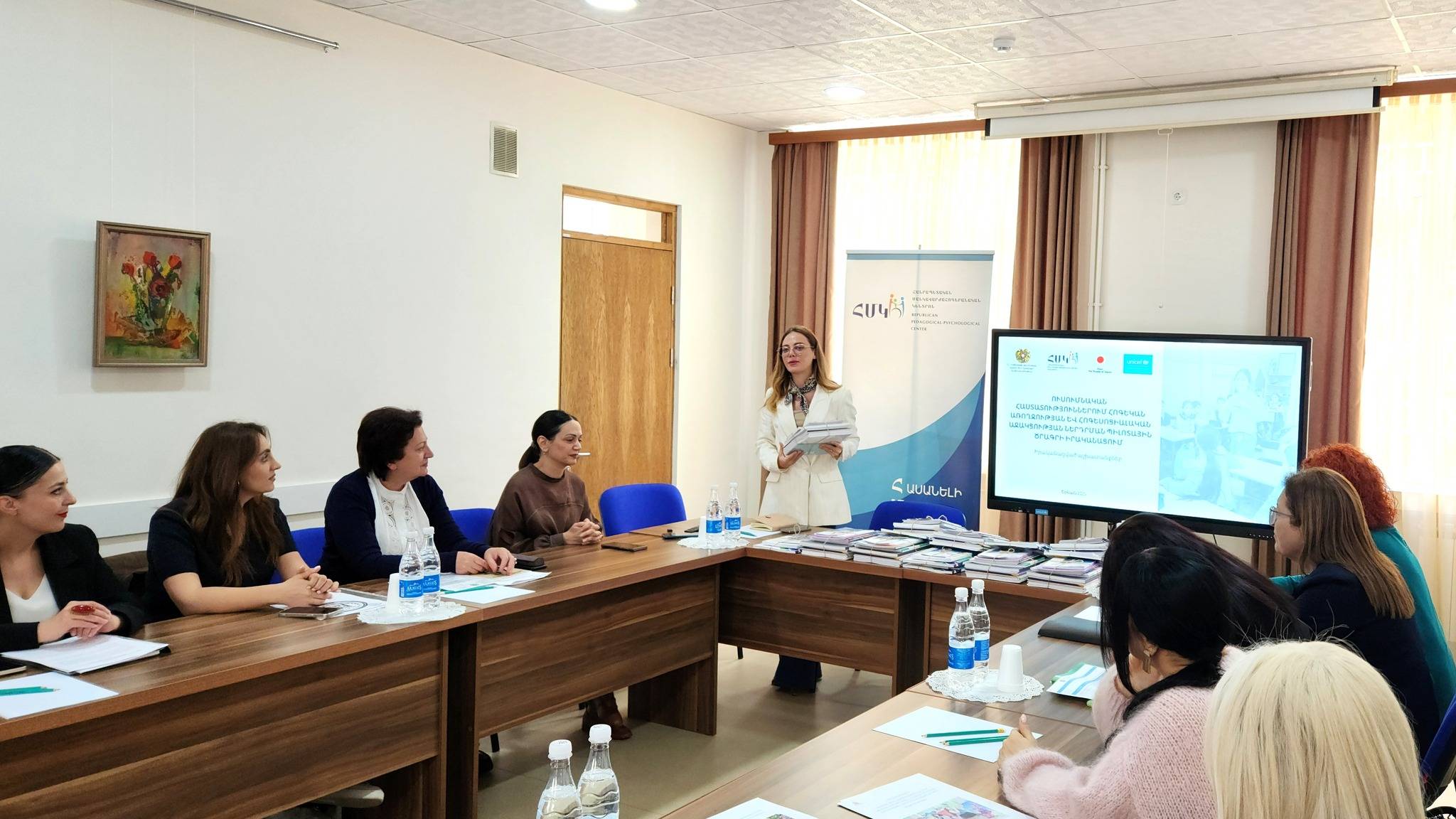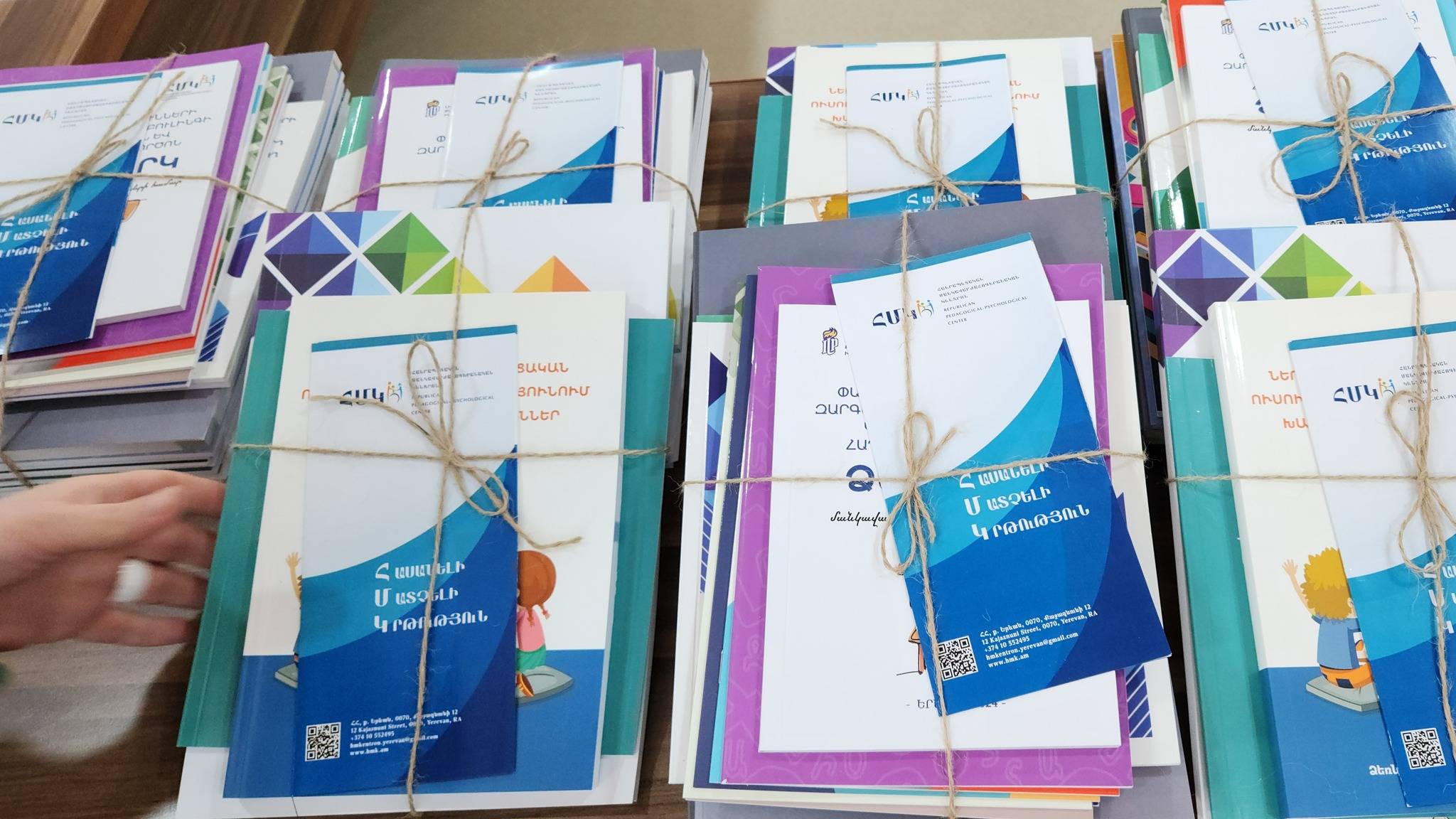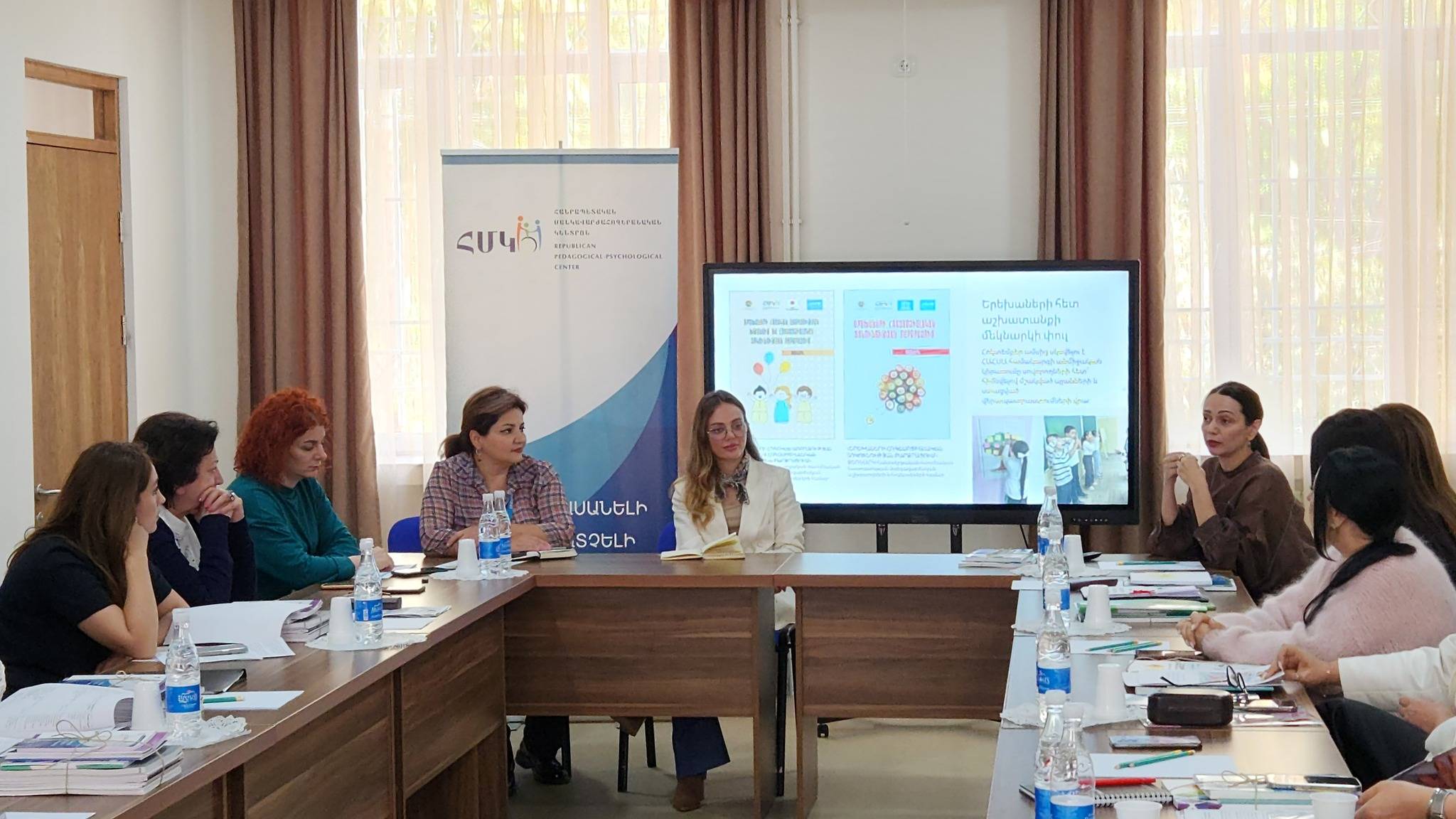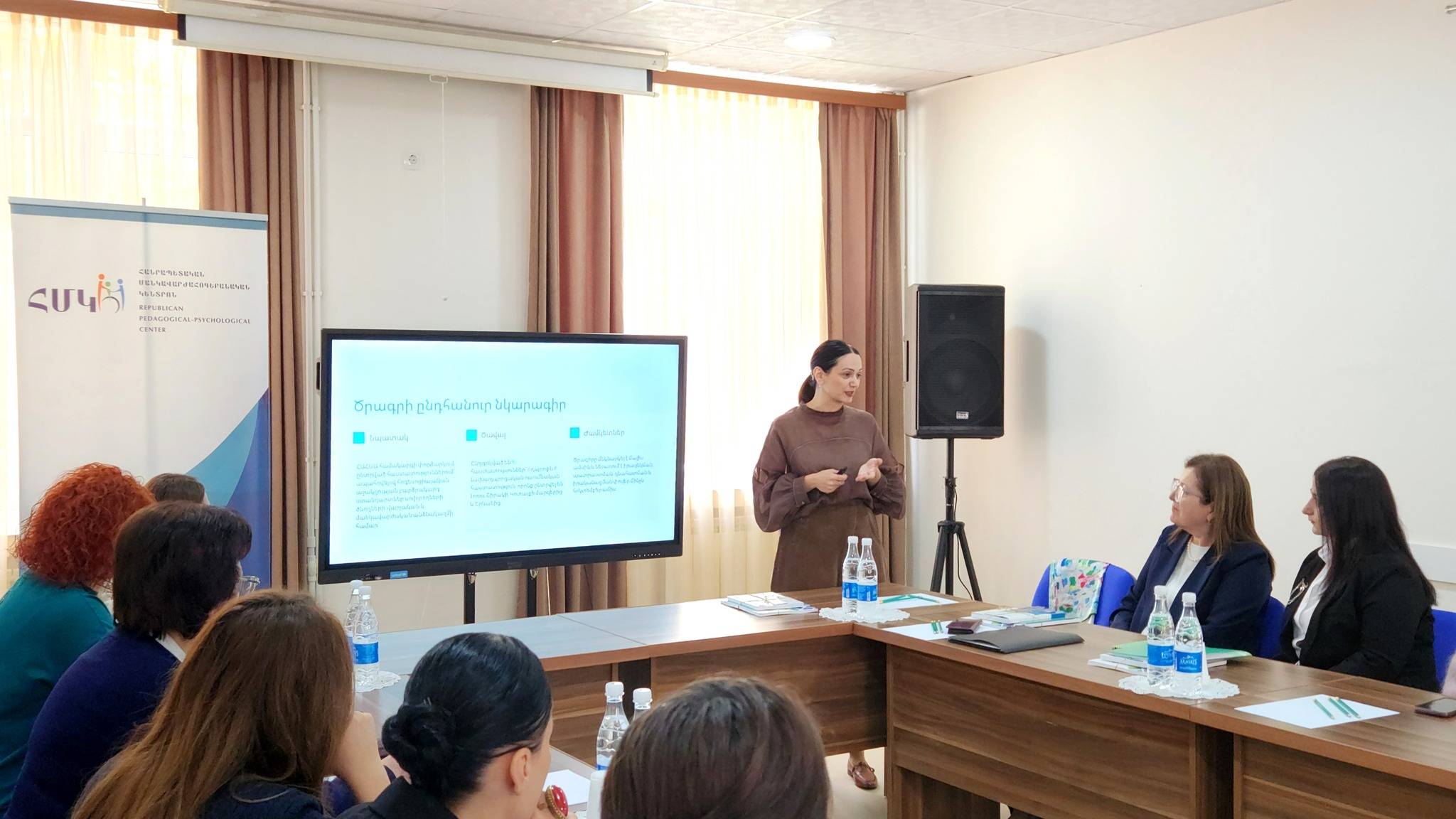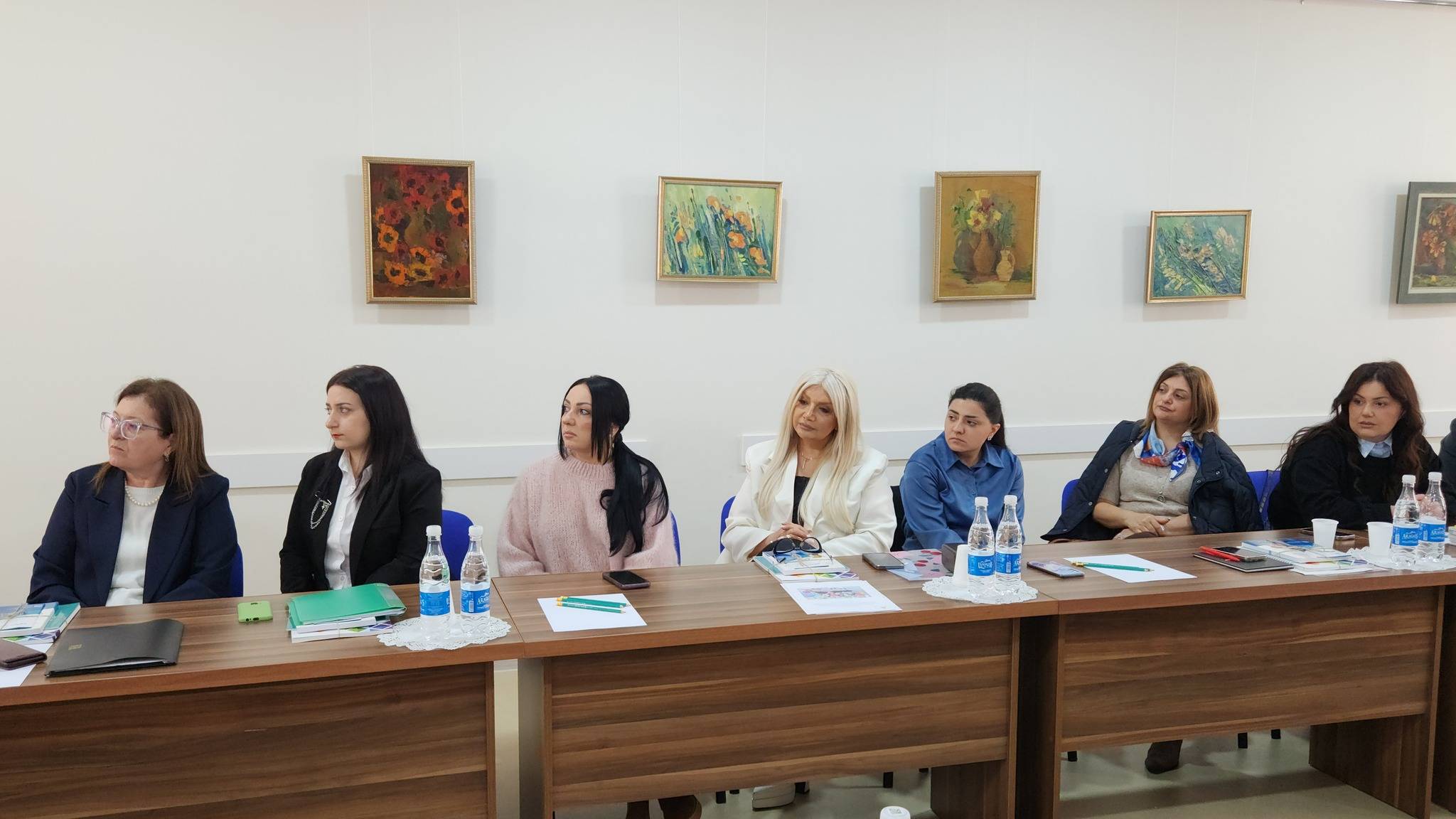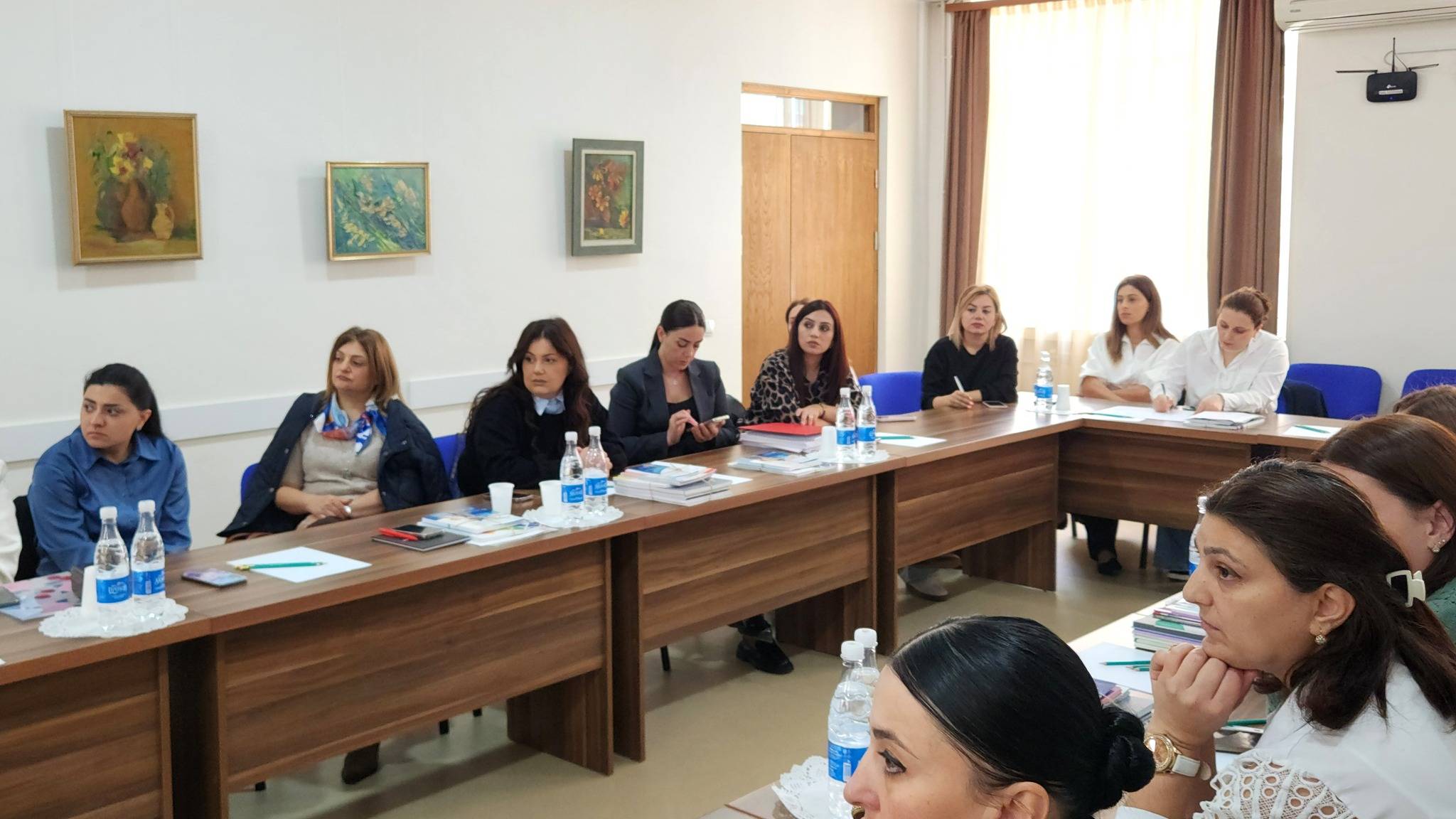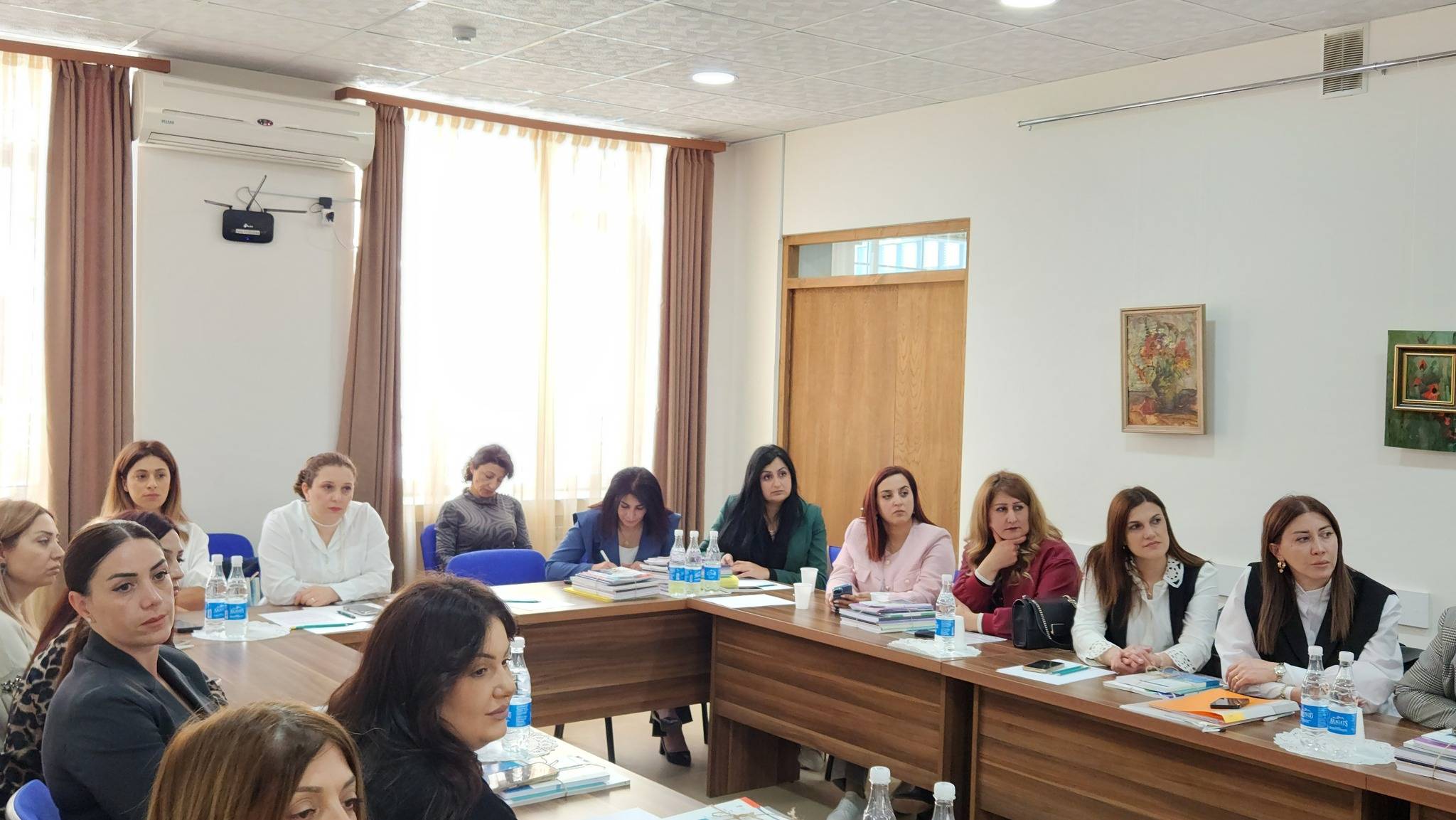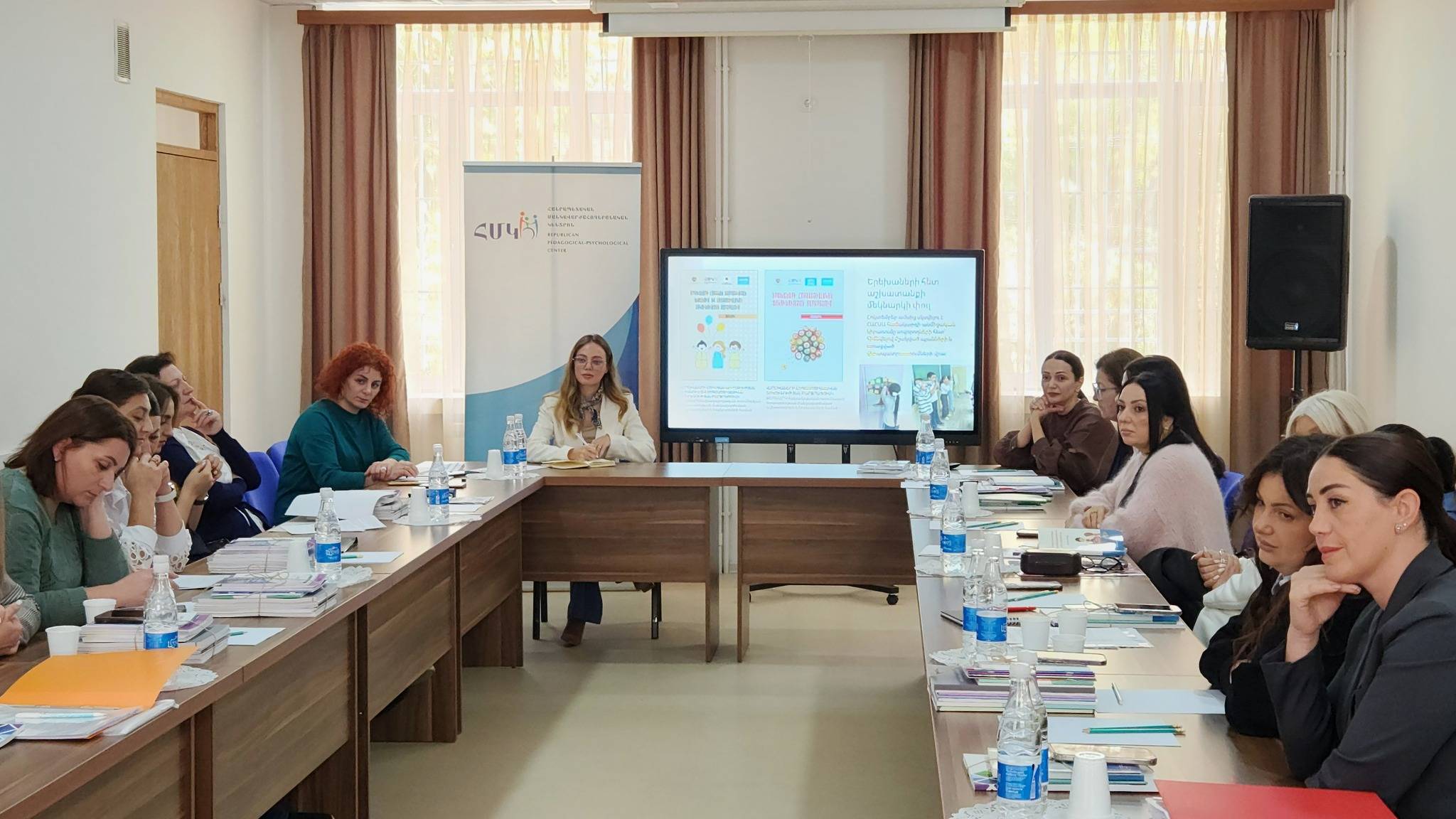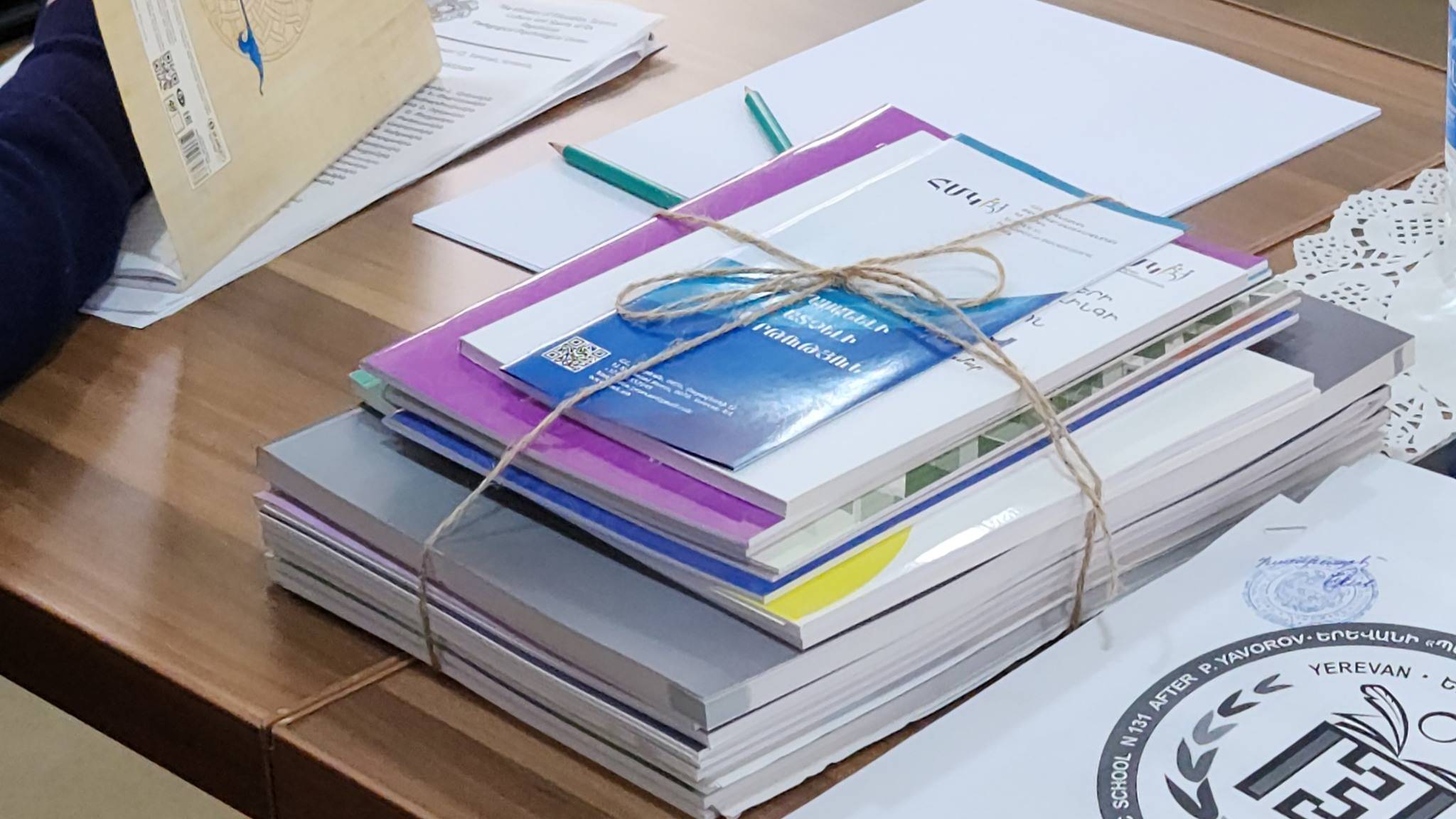On October 24, 2025, a roundtable meeting was held at the Republican Pedagogical-Psychological Center with the directors, deputy directors and psychologists of 16 educational institutions (8 pre-school and 8 general educational institutions) participating in the “DEVELOPMENT OF THE EDUCATION SYSTEM THROUGH THE INCLUSION OF MENTAL HEALTH AND PSYCHOSOCIAL SUPPORT (MHPSS) IN EDUCATION” Pilot Program implemented in cooperation with the Republican Pedagogical-Psychological Center and UNICEF Armenia with the support of the Government of Japan, during which the work planned for the first stage of the Program was summarized. UNICEF Educational Program Coordinator Hasmik Arakelyan was also present at the Meeting.
Welcoming the participants, RPPC Director Lilit Mnatsakanyan spoke in detail about the processes related to the implementation of the Mental Health and Psychosocial Support (MHPSS) Pilot Program, emphasizing their relevance from the perspective of ensuring a safe and secure educational environment in schools. Mrs. Mnatsakanyan noted that in cooperation with UNICEF and UNESCO, the operational guidelines and concept for the Mental Health and Psychosocial Support (MHPSS) system have been developed, which are aimed at regulating the process of introducing the system. Attaching importance to the need to clarify the psychological component and target groups in that context, RPPC Director highlighted the three main factors, the presence of which in the program determines the effectiveness of the work of the MHPSS system:
- ✦ correct identification and assessment of needs;
- ✦ an effective methodology for providing support;
- ✦ development and implementation of correct referral and response mechanisms.
RPPC Director expressed confidence that the training and awareness-raising activities were successfully implemented in the first phase of the processes envisaged by the Program, as well as emphasized the need to integrate them into the daily educational routine. From this perspective, Mrs. Mnatsakanyan also highlighted the creation of Child Protection (CP) teams, their composition, and the scope of involvement in increasing psychosocial resilience and identifying cases of bullying and violence. She emphasized the importance of the involvement of principals, psychologists, social workers, parents, and children in CP teams in order to properly organize the implementation of preventive interventions in schools and referrals to external organizations.
RPPC Deputy Director Haykuhi Adamyan noted that, as a result of cooperation with the schools involved in the project, a number of changes have been made to the operational guidelines regulating the process of implementing the MHPSS Program in terms of mental health and procedures for responding to bullying and violence. Additionally, amendments and corrections to the procedures and relevant documents are also planned to be implemented after the end of the Pilot Program, summarizing the existing experience. Within the framework of the activities implemented by the Program, H. Adamyan emphasized the importance of cooperation with beneficiary organizations, territorial administrations, and community structures, as well as the implementation of activities aimed at raising the awareness of the latter. In the context of the activities carried out with target groups, H. Adamyan also drew attention to the need to develop sensitive mechanisms for working with children.
The principals and psychologists of the schools involved in the Program presented the activities carried out in their schools during the first phase of the Pilot Program, spoke about the effectiveness of working with the toolkits presented in the operational guidelines, and the challenges that emerged during their implementation. They shared their experience, ideas, methodologies, as well as recorded successes, and made recommendations stemming from that experience, also considering the implementation of thematic activities in various classes.
During the Meeting, the procedures for launching the MHPSS system were clarified, future actions, strategies for implementing the activities and feedback mechanisms were outlined.
The Meeting concluded with the clarification of next steps and deadlines, with the expectation of a new meeting. These events contribute to the strengthening of a collaborative culture in educational institutions, the planning of joint actions aimed at the psychosocial well-being of children, and the sustainable implementation of the MHPSS system.
27.10.2025

